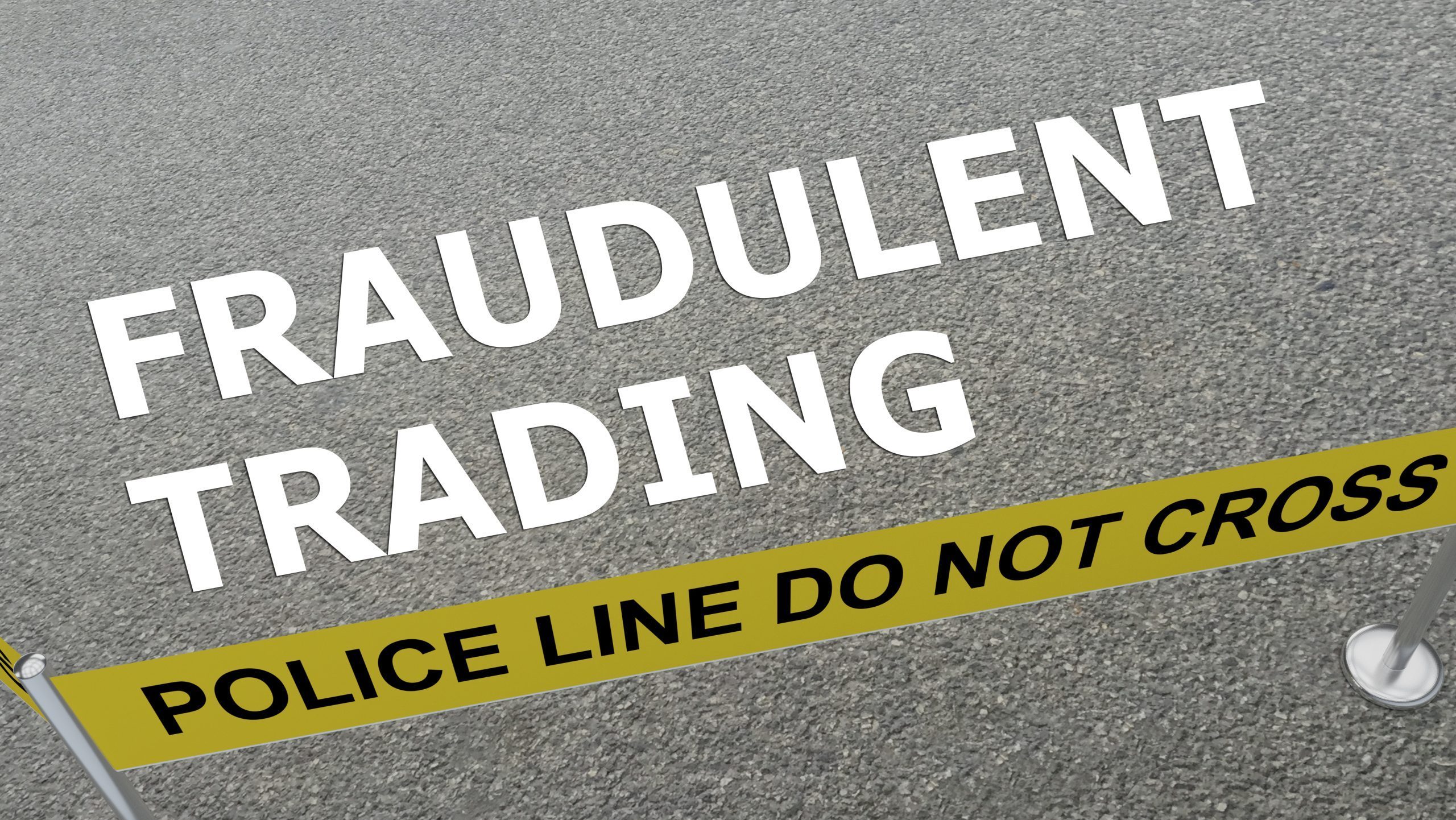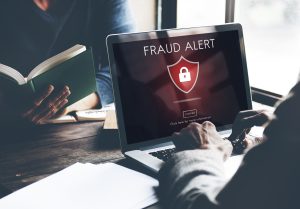
You’re about to embark on a journey that will equip you with practical tools and methods to safeguard yourself from falling prey to scams and deceitful trading schemes. In the upcoming article, “How Can I Avoid Falling For Scams And Fraudulent Trading Schemes?” you’ll gain insights into how these fraudulent operations work, the red flags to watch out for, and the steps you can diligently follow to steer clear away from them. Prepare for an informative and empowering read that’s all about helping you thrive safely in today’s complex financial landscape.
Understanding the Basics of Scams and Fraudulent Trading
In a world where financial transactions are becoming increasingly digitized and more sophisticated, you encounter diverse opportunities that can bring lucrative returns. Unfortunately, so too do the possibilities of scams and fraudulent trading. For you to shield yourself, you need to know what they are, their characteristics, and the damage they might cause.
Definition of Scams and Fraudulent Trading
Scams are deceptive schemes designed to defraud and swindle you out of your money, personal information, or both. Fraudulent trading, an aggressive form of scams, involves deceiving you into making damaging financial decisions, like spurious investments, with the intent of financial gain for the scammer.
Common Characteristics of Scams and Fraudulent Trading
While scams and fraudulent trading come in different shapes and sizes, they often share common characteristics. These schemes typically promise you high returns with low risks. Scammers might employ high-pressure sales tactics or exploit your fear or lack of knowledge. They might also lack transparency, disappear quickly, or engage in complex transactions that are challenging to understand.
The Damage Caused By Scams and Fraudulent Trading
Beyond your immediate financial losses, scams and fraudulent trading schemes can have long-lasting impacts. They can ruin your credit rating, leave you with hefty debts, or even trigger bankruptcy. Moreover, they can cause immense psychological stress and erode your trust in the financial system.
Types of Scams and Fraudulent Trading
As our lives increasingly migrate online, so too do the ways in which scams and fraudulent trading are perpetrated. Knowing about these common types can help you stay alert and safeguard your hard-earned assets.
Online Investment Scams
Online investment scams typically involve promises of amazingly high returns for small startup capital. They often use professional-looking websites and testimonials to lure you into investing.
Identity Theft
Identity theft occurs when a scammer acquires your personal identification information, such as your social security number or bank account details. They then use this information to commit fraudulent activities, like opening bank accounts in your name or making unauthorized transactions.
Phishing Scams
Phishing scams involve criminals sending deceptive emails or texts that appear to come from legitimate organizations like your bank or utility company. They attempt to trick you into revealing your sensitive data.
Ponzi Schemes
A Ponzi scheme is a type of investment fraud where returns for older investors are paid out using funds from new investors. Such schemes are unsustainable and eventually collapse, leaving the latest investors out of pocket.
Advanced Fee Frauds
Here, the scammer convinces you to pay a fee in advance to secure a considerable financial gain. Once the payment is made, the scammer disappears without delivering my supposed windfall.
Red Flags for Scams and Fraudulent Trading
While scammers continually evolve their strategies, certain “red flags” should make you pause and reconsider before proceeding with any financial agreement or transaction.
Unrealistic Guarantees of High Returns
If an investment seems too good to be true, it likely is. No investment can provide guaranteed high returns with low risks all the time.
Pressure Tactics
Scammers often create a sense of urgency to force you into making a quick decision, thus leaving no time for you to do complete research or seek advice.
Obscurity and Lack of Transparency of the Investment
Transparent and legal investments provide comprehensive details about the opportunity. If you lack clear information or find it confusing, it’s likely a scam.
Unsolicited Offers
Unsolicited phone calls, emails, or messages about an investment opportunity are often scams. Especially if the communication lacks personalization and seems generic or like a form letter.
Protection Measures Against Scams and Fraudulent Trading
Prevention is your best defense against scams and fraudulent trading. Adopting these steps can enhance your protection.
Keeping Personal Information Private
Be careful whom you share personal or financial information with. Scammers could use this information for fraudulent activities.
Use of Secure and Certified Websites
Only provide personal information on secure websites—those with an “https://” prefix. Such websites encrypt data during transmission, thus securing it from hackers.
Being Skeptical of Quick Rich Schemes
Always be wary of any investment promising quick, high returns. Most legitimate investments grow over time.
Regular Software and Device Updates
Keep your devices and software up-to-date, as updates often carry security improvements that guard against the latest online threats.
Online Safety Practices
When dealing with finances online, you need to follow best practices that guarantee your safety.
Techniques for Safe Online Shopping
Opt for reputable online marketplaces, use secure payment methods, and be wary of too-good-to-be-true deals.
Secure Password Practices
Create strong, unique passwords for each online account, and change them regularly.
The Importance of Multi-Factor Authentication
Where possible, enable multi-factor authentication for an added layer of security.
Recognizing Secure Websites
Check the URL for “https://” and look for the padlock symbol, which signifies a secure website.
Reporting Scams and Fraudulent Trading
Reporting scams and fraudulent trading activities can help protect others and enhance the authorities’ chances of halting the fraudsters.
Official Channels for Reporting
Always report scams and fraudulent trading to your local law enforcement agency or financial regulatory authority.
The Role of Law Enforcement Agencies
Law enforcement agencies investigate reports, capture culprits which can lead to prosecution and possible recovery of stolen funds.
Whistleblowing Policies
Companies often have whistle-blowing policies to report suspicious activities. Doing so can expose a scam early and limit its impact.
Recovering From a Scam
If you’ve fallen victim to a scam, report it, check your credit reports, and monitor your accounts closely.
The Role of Education in Avoiding Scams and Fraudulent Trading
Education can play a significant role in equipping you with necessary knowledge that can help you spot and steer clear from scams and fraudulent schemes.
Importance of Financial Literacy
possessing a good understanding of financial products, markets, and risks can help you identify far-fetched investment offers and protect you from scams.
Resources for Learning About Scams and Fraudulent Trading
There are various resources available, including government websites, consumer advocacy organizations, and financial advisory firms that offer extensive information on scams and how to avoid them.
The Role of Schools and Communities in Education
Schools and communities can play a critical role in scam prevention by educating members about online safety practices and financial literacy.
The Role of Regulation and Legislation in Deterring Scams and Fraudulent Trading
Regulation and legislation are essential to discourage and penalize scams and fraudulent trading activities.
Relevant Regulatory Bodies
Regulatory bodies oversee markets and enforce laws for financial institutions, making the system safer for you.
Recent Legislative Actions Against Scams and Fraudulent Trading
Legislative bodies worldwide continue to enact harsher penalties for fraudsters and establish laws that safeguard consumers.
How Regulatory Bodies Protect Consumers
Regulatory bodies protect you by issuing warnings about scams, prosecuting fraudsters, and implementing protective measures.
Case Studies of Scams and Fraudulent Trading
analysis of past scams and fraudulent trading schemes provides valuable lessons on what to avoid in the future.
Recent High-Profile Scams
Case studies of high-profile scams like the Bernie Madoff Ponzi scheme or the Mt Gox Bitcoin exchange collapse illustrate signs you can be on the lookout for.
Analysis of How Scams and Fraudulent Trading Happened
In-depth analyses can reveal the tactics scammers used and how investors fell victim, providing a roadmap on what to avoid.
Lessons Learned From These Cases
Learning from these cases reinforces the importance of checking investment credentials, avoiding pressure tactics, and verifying the legitimacy of financial opportunities.
The Future of Scams and Fraudulent Trading
As our digital landscape continues to evolve, so will scams and fraudulent trading schemes.
Emerging Trends in Scams and Fraudulent Trading
Scams are moving deeper into the digital realm, with cryptocurrencies and online commerce proving fertile ground for fraudsters.
Technologies Used in New Scams
Emerging technologies like AI and deepfake videos are being used in more sophisticated scams, requiring you to stay alert and informed.
How to Stay Ahead of Emerging Scams
By staying informed about advancements in scams, maintaining good online safety habits, and always questioning too-good-to-be-true offers, you can stay ahead and safe.





